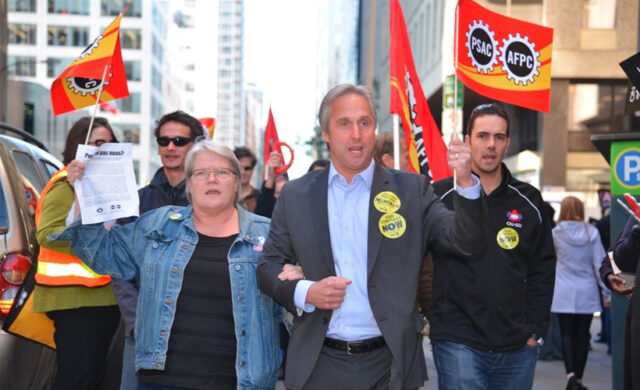Last month, the Public Service Pension Advisory Committee (PSPAC) met to discuss retirement-related issues in the public service. The PSPAC is the body that provides input concerning the managing of public service pension funds. It includes several unions and Treasury Board representatives.
In the meeting the PSAC successfully pushed to have early retirement reform for Border Services employees and Department of Defence Firefighters (also PSAC members) prioritized to be addressed by the committee. Dates for follow-up meetings have not yet been set.
In a recent meeting with Public Safety Minister Ralph Goodale, CIU National President Jean-Pierre Fortin raised the need for there to be pension reform for CIU-PSAC members working at CBSA. The same message was communicated in a recent meeting with newly-named CBSA President Linda Lizotte-MacPherson.
PSAC National President Robyn Benson and Jean-Pierre Fortin also spoke recently with Treasury Board President Scott Brison to impress upon the government the importance of this issue to our union and membership.
At the bargaining table, our FB Bargaining Team continues to push for a commitment from CBSA and Treasury Board in support of an early retirement regime for CBSA employees. In light of the work that we do, and the employer’s legal duty to accommodate, we believe that such a retirement arrangement is not only in the interest of employees of the FB group, but also the Agency.
We call on CBSA and the Treasury Board to support the amending of our pension plan so that we might have access to the same retirement benefit as other federal workers who are required to maintain similar physical standards. It’s in the best interests of everyone involved – union members, the government and CBSA.
We’ll be sure to provide update as things progress. For more information, contact your Branch President or go to ciu-sdi.ca or psacunion.ca/employer/fb-group.
Download the PDF version of this update (bilingual document).






